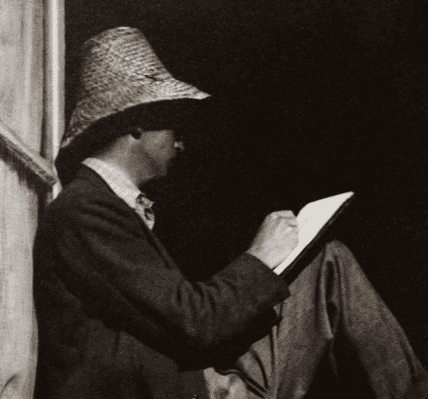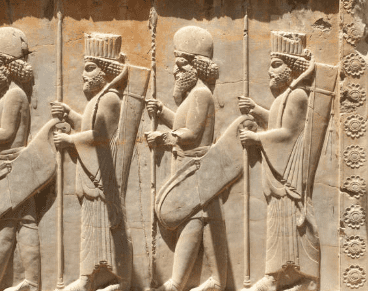Where Did Affirmations Come From?
Regardless of who was the first to proclaim their power, there is no denying that affirmations have assisted countless people in achieving their goals and improving their lives throughout the world.

Selfpause Affirmation App
Download the app to get 1,000’s of affirmation meditations and everything you need to write, record and listen to your own.
While the exact origins of affirmations are somewhat unclear, it is believed that they first gained popularity in the early 20th century. Some believe that French author Emile Coué was the first to really champion their use, while others credit self-help guru Napoleon Hill. Regardless of who was the first to espouse their power, there is no denying that affirmations have helped countless people achieve their goals and improve their lives.
What are affirmations exactly? They are simply positive statements that we repeat to ourselves in order to program our minds for success. For example, if you are trying to lose weight, you might repeat the affirmation “I am healthy and slim” several times each day. By repeatedly telling yourself this, you are essentially training your brain to believe it, which will in turn help you to make healthier choices and reach your goals.
Who Invented Affirmations?

When it comes to the origins of affirmations, there is some debate. Some believe that they date back to ancient times, while others believe that they were first coined in the early 20th century. Regardless of their exact origins, affirmations have become a popular tool for self-improvement and personal growth.
There are many different theories about who first came up with the idea of using affirmations. Some believe that ancient philosophers such as Plato and Aristotle used them in their teachings. Others believe that religious figures such as Buddha and Jesus used affirmations as a way to spread their message.
While the history of affirmations remains unclear, it is believed that they originated in spiritual or religious practices. The use of affirmations has been documented in many different cultures and religions, including Christianity, Buddhism, Hinduism, Islam, and Judaism.
The first recorded use of the term “affirmation” was in 1843 by philosopher and theologian Ralph Waldo Emerson. In his essay “Compensation,” Emerson wrote: “Every man is an affirmation of himself.”
Emerson’s essay popularized the idea of using affirmations as a way to improve one’s life. In the early 1900s, New Thought leader Wallace D. Wattles popularized the use of affirmations in his book “The Science of Getting Rich.” Wattles believed that repeating positive statements about oneself could attract wealth and success.
Since then, many different people have used affirmations to achieve their goals. Today, affirmations are commonly used by people who want to improve their self-esteem, lose weight, quit smoking, or achieve any other personal goal.
The origins of affirmations are still unclear, but it is thought that they have been used for centuries by many different cultures. The use of affirmations has seen a resurgence in recent years with the popularity of self-help books and programs.
17 Famous People Who Are Proponents of Using Affirmations

1. Louise Hay is one of the most well-known names in the affirmation space. She’s written several books on the topic, including You Can Heal Your Life, which has sold over 50 million copies worldwide.
2. Lena Dunham is the creator, writer, and star of the HBO Show Girls. She’s also an advocate for using affirmations to help with anxiety and depression.
3. Oprah Winfrey is a media mogul, philanthropist, and talk show host. She’s also a big fan of affirmations. She even has a section on her website dedicated to them.
4. Ellen DeGeneres is a comedian, actress, and talk show host. She’s also a vocal supporter of using affirmations, and she often shares them on her show.
5. Tony Robbins is a motivational speaker, author, and life coach. He’s used affirmations throughout his career to help people achieve their goals.
6. Maya Angelou was a poet, activist, and author. She’s best known for her book I Know Why the Caged Bird Sings. Angelou was also a big believer in the power of affirmations.
7. Rhonda Byrne is the creator of The Secret, a book and film that explores the power of positive thinking. Byrne is a big proponent of using affirmations to manifest your desires.
8. Abraham-Hicks is a self-help organization that teaches the law of attraction. The organization’s founder, Esther Hicks, is a big fan of affirmations and often uses them in her teachings. She is also a spiritual teacher who’s best known for her work on the law of attraction. She’s written several books on the topic, including The Law of Attraction.
9. Joe Vitale is an author and marketing expert who was featured in The Secret. He’s a strong advocate for using affirmations to attract what you want in life.
10. Michael Bernard Beckwith is the founder and spiritual director of the Agape International Spiritual Center. He’s written several books on spirituality, including one on affirmations.
11. Marianne Williamson is an author and lecturer who’s written extensively on spirituality and self-help. She’s also a big fan of using affirmations, and she often shares them on her social media channels.
12. Deepak Chopra is a world-renowned physician, author, and speaker. He’s also a proponent of using affirmations to improve your health and well-being.
13. Wayne Dyer was an author and motivational speaker who wrote extensively on spirituality and personal development. He was a big believer in the power of affirmations and used them regularly throughout his life.
14. Eckhart Tolle is a spiritual teacher and author whose book The Power of Now has sold millions of copies worldwide. Tolle is a big fan of affirmations and often uses them in his teachings.
15. Gary Zukav is an author and spiritual teacher who wrote The Seat of the Soul, a best-selling book about spirituality. He’s also a big proponent of using affirmations to improve your life.
16. Norman Vincent Peale was a minister, author, and radio host, and was one of the earliest advocates for the power of positive thinking. He wrote several books on the topic, including The Power of Positive Thinking.
17. Joe Dispenza is a chiropractor, author, and speaker who’s best known for his work on the power of the mind. He’s written several books on the topic, including You Are the Placebo.

How to Make Affirmations Come True
There are many different ways to make affirmations come true. One way is to simply repeat the affirmation to yourself frequently. This helps to ingrain the belief into your subconscious mind. Another way is to put the affirmation in a place where you will see it often, such as on a mirror or on your desk at work. Seeing the affirmation regularly will help to remind you of your goal and keep you motivated.
When choosing an affirmation, it is important to make sure that it is something that you truly believe. If you are unsure of whether or not you believe an affirmation, it may be helpful to test it out first by repeating it to yourself for a few days and observing how you feel. If you find that the affirmation makes you feel good and helps you to stay positive, then it is likely a good choice for you.
It is believed that the power of affirmations comes from the fact that they are positive statements. Repeating a positive statement over and over again can help to change your thinking and beliefs about yourself and the world around you.
There are many different ways to make affirmations come true. One way is to write them down on paper or say them out loud to yourself every day. Another way is to find affirmation cards or posters and place them where you will see them often.
You can also create your own affirmations. To do this, think about something that you would like to change or improve in your life. Then, write down a positive statement about it. For example, if you want to lose weight, you could say “I am healthy and fit”, or “I love my body just the way it is.”
It is important to believe in your affirmations in order for them to be effective. If you are having trouble believing in your affirmation, try repeating it several times a day or adding an emotional element to it (such as visualizing yourself achieving your goal). With time and practice, your affirmations will become more powerful and will help to bring about the changes you desire in your life.
Conclusion

Affirmations have been around for centuries, with the earliest recorded instance being in the 3rd century BC. The practice has evolved over time, but the basic premise remains the same: repeating positive statements to oneself can lead to real-life changes.
There is no definitive answer as to who invented affirmations or why they work, but there are many theories. Some believe that our words have power and that speaking them out loud helps to manifest our desires into reality. Others think that the act of saying affirmations aloud helps to reprogram our subconscious mind, which then manifests changes in our behavior and circumstances.
Whatever the reason, there is no doubt that affirmations can be powerful tools for achieving our goals. If you’re looking to make some positive changes in your life, try coming up with a few affirmations and repeating them to yourself each day. With a little practice, you may be surprised at just how effective they can be!
Our Top FAQ's
The origin of the practice of using affirmations is not well-defined, but it likely dates back to ancient times. Some suggest that the practice of using positive statements to affirm one’s beliefs or desires may have originated in Eastern spiritual traditions, such as Hinduism or Buddhism, where mantras were used for meditation and spiritual growth. Others argue that the use of affirmations can be traced back to ancient Greek and Roman philosophers, who wrote about the power of positive thinking and the importance of self-reflection.
The concept of affirmations was first introduced by the French philosopher René Descartes in the 17th century. In his famous philosophical work, “Meditations on First Philosophy,” Descartes wrote about the importance of positive thinking and the power of the mind to shape reality. He argued that by focusing on positive thoughts and beliefs, we can overcome negative emotions and achieve our goals.
Common sources or inspirations for affirmations include religious and spiritual traditions, philosophical writings, self-help books, and psychology. Many affirmations are based on the idea that our thoughts and beliefs have a powerful influence on our reality, and that by focusing on positive thoughts, we can create positive changes in our lives. Some affirmations are inspired by religious or spiritual beliefs, such as the idea that our thoughts can create reality, or that we are connected to a higher power. Others are based on psychological principles, such as the idea that our thoughts and beliefs affect our behavior and emotions.
Affirmations have evolved over time, with different practitioners and authors contributing their own interpretations and approaches to the practice. In the 19th and 20th centuries, the use of affirmations became more widespread, with the rise of the self-help movement and the popularity of positive thinking. Today, affirmations are often used in a variety of settings, including therapy, coaching, and personal development. Some practitioners have developed more structured approaches to affirmations, such as visualization techniques or specific daily practices, while others have focused on the spiritual or psychological aspects of the practice.
Affirmations are used in many different cultures and traditions around the world. In some cases, the use of affirmations may be tied to specific religious or spiritual practices, such as mantras in Hinduism or Buddhism. In other cases, affirmations may be used more broadly as a tool for personal development and self-improvement. For example, many self-help books and personal development programs include affirmations as a way to help people overcome negative thoughts and beliefs, and achieve their goals.
